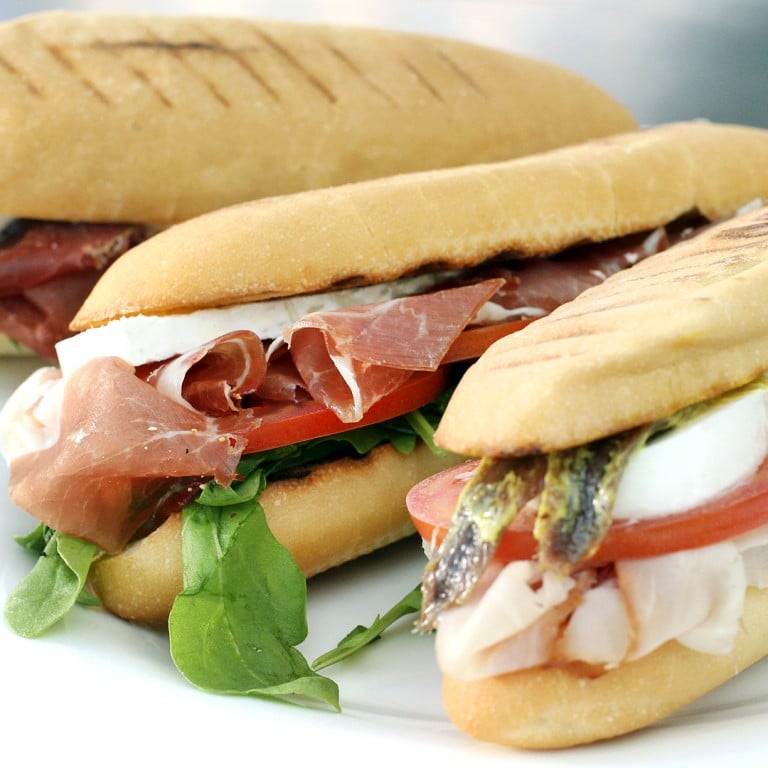
Why is a good sandwich so hard to find in Hong Kong?
Complaining about the quality of sandwiches in Hong Kong can feel uncomfortably colonial - 'when will the natives learn to make a proper kipper?' - but this American writer doesn't care
Proper Chiu Chow food - good marinated pig's ear - or real Cantonese roast goose, or Hong Kong's many delicious tonkatsu restaurants. These things keep me up at night. There is just so much that the city gets right when it comes to food.
As a food writer who's just moved back to my native US, my cravings for Hong Kong food can drive me to distraction. Still, for every unsatisfied hunger there are meals here that remind me that Hong Kong can also get food very wrong. So many potentially delicious snacks are laughably expensive, poorly executed, or outright impossible to find in Hong Kong. I suppose it isn't really fair to expect excellent Memphis-style barbecue, or a nice Oaxacan mole, but why is it so hard to find a tasty sandwich?
Sandwiches are not just a random example, they are an obsession of mine and were a constant source of frustration and disappointment when I lived in Hong Kong.
I'm not saying Hong Kong's sandwiches are all bad. I hear from people I trust that the sandwiches at Sunday's Grocery and Panino Giusto are good, if ridiculously priced. I've also had some good Catalan-style bikini sandwiches - basically, Iberico ham and manchego grilled cheese - at a few Spanish restaurants in the city; I've enjoyed my share of hung-over Macau-style fried pork chop sandwiches, and have gone nearly an hour out of my way for the chicken salad sandwich at the little local cafe below the government offices in Ngau Tau Kok. And, if we count bao as a sandwich then I've enjoyed a good deal of them in Hong Kong. I'll even admit to a guilty pleasure: the extremely tasty pulled pork sandwich at Coyote Bar & Grill in Wan Chai. But if in five years the most memorable sandwich I ate was from Pret A Manger, then something is wrong.
Of course, complaining about the quality of sandwiches in Hong Kong can feel uncomfortably colonial - "when will the natives learn to make a proper kipper?" - but I don't care. There is simply no excuse. Some of the best cured meats experiences I have had in my life I had in Hong Kong. The cheese is as good - arguably better - than that commonly available in the US. While a decade ago the blame could be comfortably laid on the bread, that is not the case today. Hong Kong is home to some excellent bakeries. Then why can't Hong Kong put the three together satisfactorily?
If someone did manage to get a basic sandwich right they would probably turn around and sell in for HK$200. Which brings me nicely to my next gripe. There is some food that is meant to be expensive and some food that is not, to price the latter like the former is rude.
Tapas should be markedly less expensive than an entrée. When your restaurant offers small plates of any tradition they should be accompanied by a comparatively small price tag: the trend of ordering a few small dishes instead of one large dish has not been treated as an excuse to half the portion and keep the price the same anywhere but in Hong Kong, and it is embarrassing. Tacos should only cost a few dollars, ditto all "street food" that is so popular at indoor restaurant these days.
Restaurateurs will blame high rents. Well, I am writing this in San Francisco where the rents are the highest in the world at the moment, and in the ultra-trendy Mission district, tacos are still less than US$3 each. You can pay double that in some Hong Kong taquerias. And don't even try to blame the cost of ingredients. Yes, I know that Hong Kong has to import almost everything, but in a US supermarket the cheapest foodstuffs are often from the farthest away: shrimp from Bangladesh, strawberries from Chile and meat from China.
Just this afternoon at the local market I bought all of my groceries, most of which were from overseas, and had US$8 left over for a little impulse buy: a foot-long turkey sub sandwich from the deli counter on the way home.

